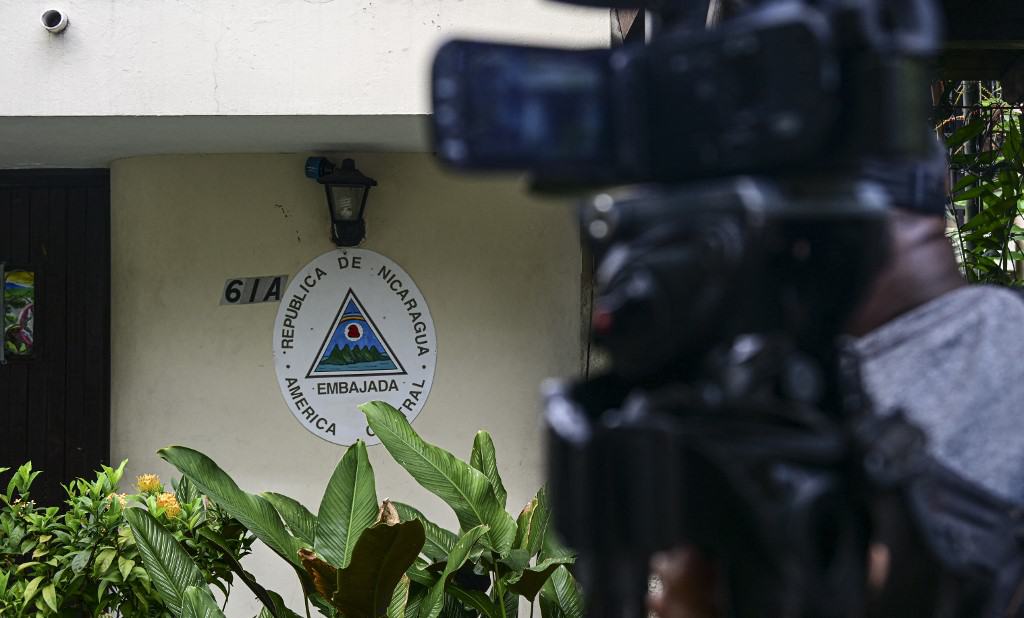Panama rejected on Monday a request from Managua to establish a consulate in the house adjacent to the Nicaraguan embassy in the Panamanian capital, where former President Ricardo Martinelli remains in asylum to avoid a prison sentence.
“The Embassy of Nicaragua in Panama […] communicated its intended intention to initiate functions of a Consulate in a residence adjacent to the headquarters of that Diplomatic Mission,” said the Panamanian Foreign Ministry in a statement. “The non-acceptance of said request was communicated via telephone to the Nicaraguan Foreign Ministry,” it added.
Therefore, Panama “does not recognize diplomatic privileges or immunities in the neighboring property,” warned the Panamanian Foreign Ministry, which on March 9 had denied Martinelli a safe passage to leave for Nicaragua.
Martinelli (2009-2014) sought refuge in the embassy on February 2, and Nicaraguan President Daniel Ortega immediately granted him asylum, days after losing the last appeal to annul a sentence of almost 11 years in prison for money laundering.
On February 22, a judge issued an arrest warrant against the right-wing former president, and on March 4, the Electoral Tribunal disqualified him as a candidate for the May 5 elections, in which he had good chances of returning to power, as he was leading the polls.
From the embassy, Martinelli has not stopped issuing political messages on social networks, despite the Panamanian government warning Managua that this could have diplomatic consequences.
Panama accused President Ortega of violating diplomatic agreements by allowing these activities of Martinelli in the embassy and demanded him to prevent such actions.
The Panamanian Foreign Ministry also said that on Monday it sent a “protest note for the permissive attitude of the Nicaraguan Government in the Embassy headquarters […], openly and defiantly contravening the development of the diplomatic function.”
Martinelli, 71, was sentenced last July to 128 months in prison and to pay a fine of 19 million dollars for money laundering. The sentence became final after he lost his last judicial appeals on February 2.
He was convicted of buying, with public money while he was president, the majority of the shares of Editora Panamá América. For this purpose, he used part of the 43.9 million dollars from the payment of bribes, which different companies deposited in a complex scheme of societies.
The former president was replaced as a candidate by his former Minister of Security, José Raúl Mulino.






